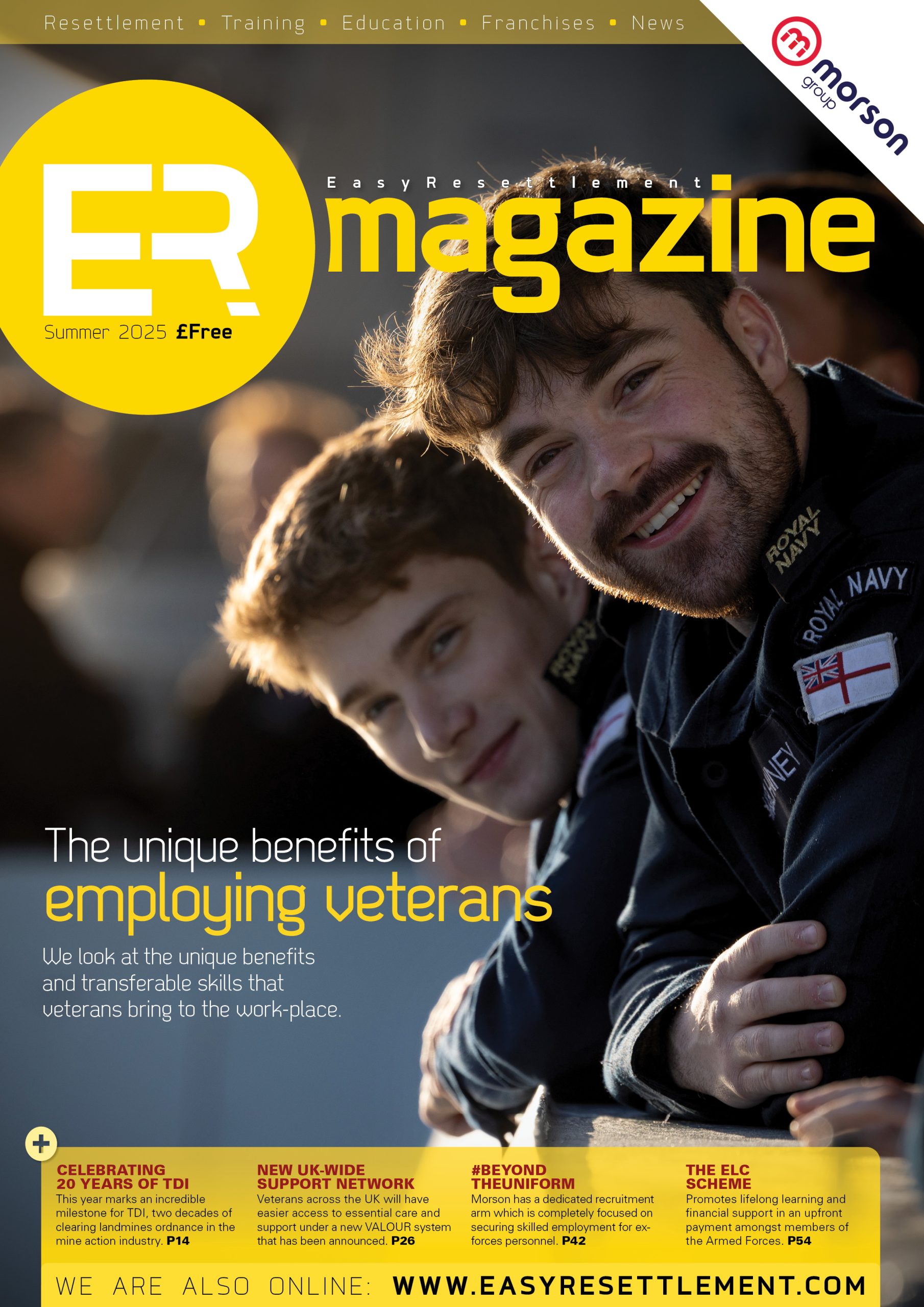Veterans are more likely to find work
This is according to a major new study released by the Veterans Work consortium, reveals that military service is likely to improve your chances of finding employment.
The report, titled ‘Veterans Work: Moving On’, surveyed 1,786 UK veterans who had transitioned out of the military in the past 10 years. The study found that, contrary to what many believe, veteran employment rates at 81% are far higher than the national average of 75.5%.
Veterans Work, made-up of leading professional services firm Deloitte and the Armed Forces charities the Officers’ Association and The Forces in Mind Trust (FiMT), is a consortium of organisations whose collective aim is to improve the understanding of veteran employment.
The increased employment rate was also reflected for Service leavers with mental health disabilities, where 62% were in employment compared to the national average of 25%. This is despite 64% of UK civilians believing that veterans are more likely to suffer from more mental, physical and emotional issues, according to a YouGov report in June 2018. The research was commissioned by FiMT and the Ministry of Defence, and involved surveying 2,849 UK civilians. The YouGov report also found that 39% of employers believe veterans are more likely to be ‘institutionalised’. In addition, 30% thought that serving in the Armed Forces ‘damages people’.
Lee Holloway, Chief Executive of the Officers’ Association, said: “There is a clear gulf between how the public perceive veterans and the reality. Veterans are more likely to be employed for instance, regardless of disability or mental health.”
He added: “The outlook for Service leavers is very promising. These research findings will help employers become better placed to recruit, retain and benefit from employing veterans.”
Chris Recchia, Partner at Deloitte and Chair of the Veterans Work Consortium, said: “Persistent negative stereotypes do unfortunately affect wider societal perception of the veteran community. While it is absolutely true that some veterans have suffered and continue to suffer, this does not reflect the experiences of the majority.
He continued: “In short, this data dispels those negative stereotypes. Our study found veterans are highly employable due to the hard work, determination, flexibility in where they work and critically, a willingness to try a whole new career.”
However, while employment rates for veterans are higher than the national average, there are regional differences. More than a quarter (26%) of veterans living in Wales, Scotland and Northern Ireland said they had found the process of finding the employment ‘very difficult’. In London this is reduced to less than 1 in 10 (9%), and half (50%) of veterans describe their experience of finding the right job as ‘easy’. Despite it being easier to find work in London, only 8% of veterans live there. The most popular place for veterans to live is the South West (24%), probably due to the region having some of the most populated military bases.
Troublingly, more female veterans reported facing employment challenges, with 27% of describing the process of finding employment as ‘very difficult’, compared to 17% of male respondents. Nearly a third (29%) of female veterans said their salary expectations were not met, while 24% of male veterans said the same.
Speaking as the report was unveiled, Air Vice-Marshal Ray Lock CBE and Chief Executive of the Forces in Mind Trust, said: “The transition out of military service into civilian life is most successful when all the elements, such as housing and employment, are tackled early, and holistically. It’s important that these challenges are, though, represented in a balanced and proportionate way. Understanding the needs of the minority who do struggle should be set alongside the successful outcomes for the majority. There is plenty of evidence to show that the public and employers hold inaccurate perceptions of the ex-Service community.”
Tobias Ellwood, Minister for Defence People and Veterans, said: “Those who have served in our Armed Forces leave with a fantastic range of transferable skills, including leadership, team work and resourcefulness.”
“Organisations can benefit significantly from their experience, and so it’s important we dispel the myth that veterans are somehow damaged by their service.”
Read the report
The full report can be downloaded at veteranswork.org.uk.

